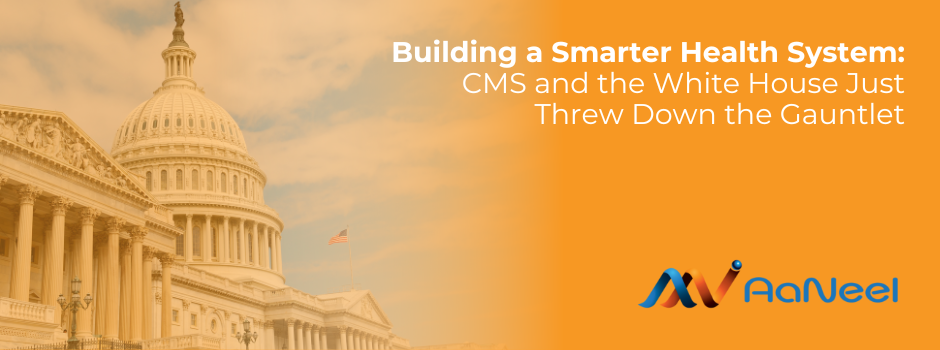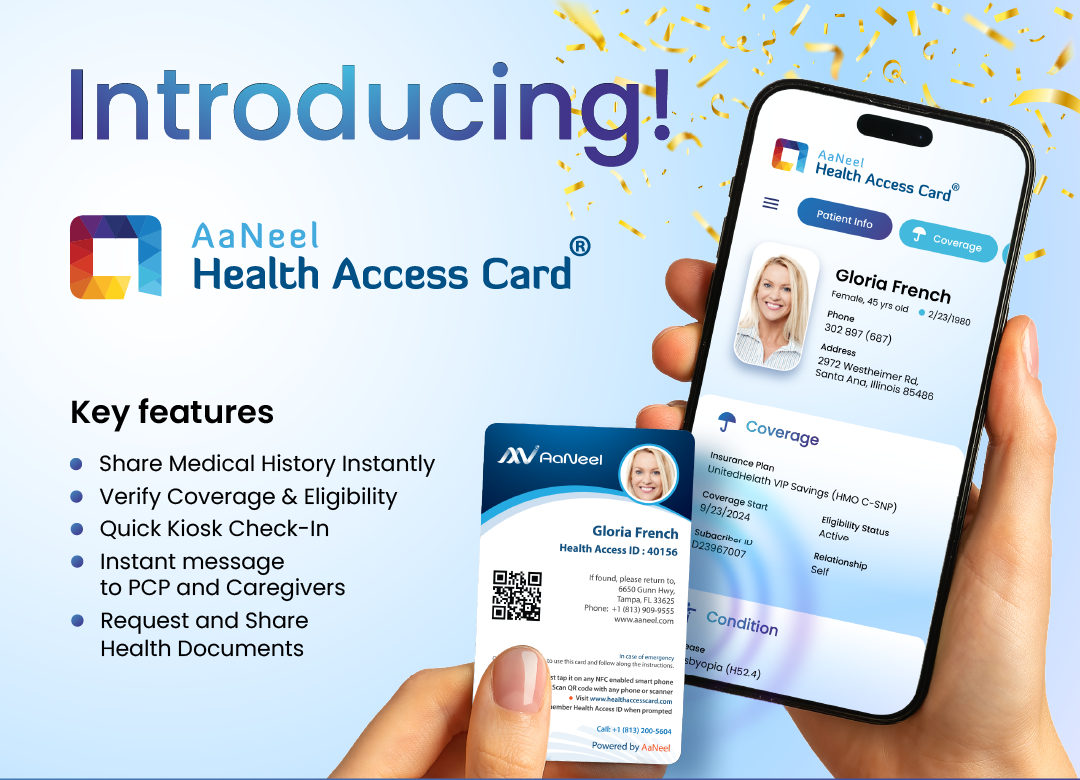Traveling Health Data

Building a Smarter Health System: CMS and the White House Just Threw Down the Gauntlet
There’s a seismic shift happening in healthcare—and it’s not just policy. It’s a full-throttle call for innovation, connection, and patient empowerment.
At a headline-grabbing White House event earlier this month, CMS and the Office of the National Coordinator for Health IT (ONC) officially launched what may be the most ambitious federal effort to date to build a next-generation Health Tech Ecosystem. Backed by some of the biggest names in tech—including Apple, Amazon, OpenAI, Google, and Anthropic—the initiative is laser-focused on making healthcare data smarter, faster, and more personalized.
This isn’t just about new apps. It’s about destroying the digital barriers that keep patients from truly owning their care.
And at AaNeel, we’re here for it.
The Shift: From Buried Data to Digital Empowerment
“For decades, bureaucrats and entrenched interests buried health data and blocked patients from taking control of their health,” said HHS Secretary Robert F. Kennedy, Jr. at the event. “That ends today.”
Strong words, bold vision.
But the work is already underway. The CMS Health Tech Ecosystem initiative aims to:
- Improve real-time access to health records
- Enhance interoperability across EHRs, health plans, and platforms
- Minimize provider and patient administrative burden
- Deliver AI-powered tools that actually help patients navigate care
- Bring FHIR-based apps, modern digital identity, and seamless data sharing to the forefront
In short, the U.S. healthcare system is being re-architected—with patients finally at the center.
Interoperability Is Now a National Imperative
While the healthcare industry has been inching toward interoperability for years, this new federal push shifts it from “nice-to-have” to non-negotiable.
Under the new CMS Interoperability Framework:
- More than 60 companies have pledged to meet CMS-aligned criteria
- 21 health information networks will share data across systems and settings
- Major EHRs are on board to help kill the clipboard—replacing intake forms with real-time digital access
- CMS is investing in FHIR-based APIs, modern identity tools, and trusted app libraries to support patient choice and security
The takeaway? CMS is no longer asking for innovation. It’s building the rules and infrastructure to demand it.
This Moment Aligns Perfectly with AaNeel’s Mission
At AaNeel, we’ve always believed that patient access, smart data exchange, and digital-first tools are essential for a healthcare system that works—for everyone.
That’s why we created the Health Access Card—a physical or digital key that gives individuals real-time access to their medical history across providers, health plans, labs, and care settings. It’s:
- Interoperability-ready (built on FHIR)
- Digitally secure (uses one-time access codes, no passwords)
- Patient-controlled (you decide who sees what, when)
- And designed to eliminate repetitive forms, missing info, and data blind spots.
What CMS has now declared as the future, we’ve already built.
What’s Next: From Promises to Practice
From diabetes management apps to AI-powered virtual assistants and real-time Medicare data access, the Health Tech Ecosystem is packed with potential. But let’s be honest—making these tools work across health systems, plans, and devices isn’t easy.
That’s why the real winners of this shift will be the organizations that move now—those who don’t just comply with interoperability, but capitalize on it.
If you’re a provider group, ACO, MSO, or plan ready to put patients in control while simplifying your operations, let’s talk. At AaNeel, we don’t just support CMS mandates—we help you build on them.
Final Word
The administration’s latest moves show us what’s possible when public policy meets private innovation. It’s time to stop talking about patient-centered care—and start building it.
And at AaNeel, that’s exactly what we’re doing.

